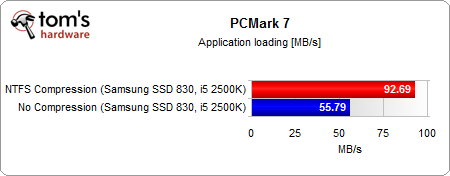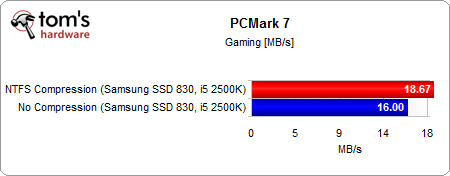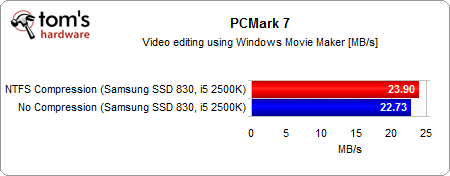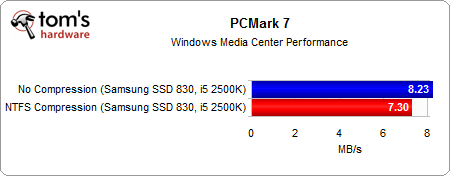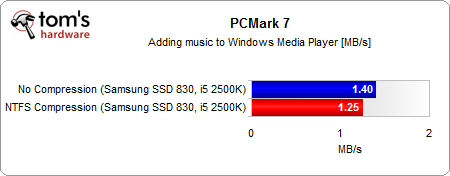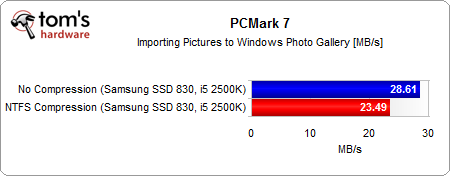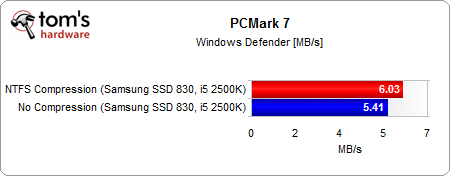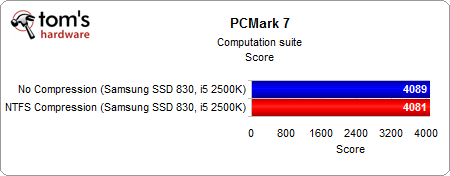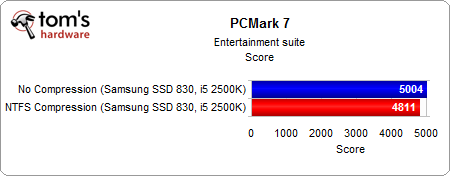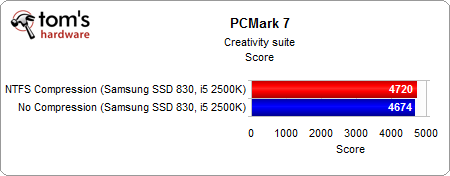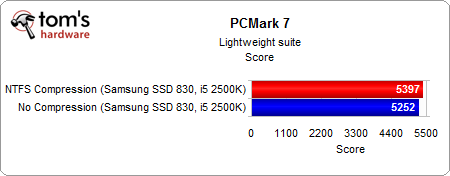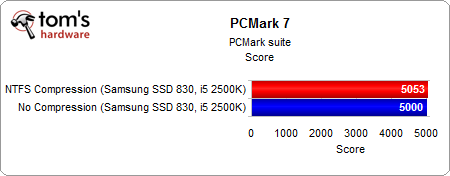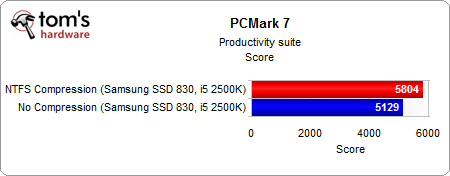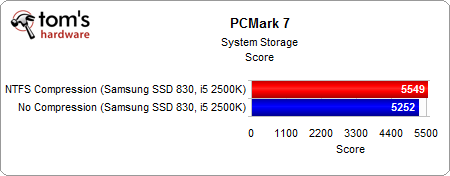Freeing Up Capacity On An SSD With NTFS Compression
Features
By
Achim Roos, Manuel Masiero
published
Flash-based solid-state drives with more than 64 or 128 GB of capacity are fairly small, but they're still really expensive relative to hard drives. Compressing the Windows partition frees up some space, but is that really a good idea?
Add us as a preferred source on Google
Benchmark Results: PCMark 7
PCMark 7 confirms that enabling NTFS compression leads to significantly higher data throughput when loading applications and in gaming scenarios, but in almost all other disciplines the lead is either small, on par with a uncompressed system drive, or even somewhat worse. The overall result, therefore, doesn't conclusively settle the matter.
Stay On the Cutting Edge: Get the Tom's Hardware Newsletter
Get Tom's Hardware's best news and in-depth reviews, straight to your inbox.
Current page: Benchmark Results: PCMark 7
Prev Page Benchmark Results: Launching Applications, Windows Startup And Shutdown Next Page Benchmark Results: SYSmark 2012
60 Comments
Comment from the forums
-
compton I've been wondering about this very topic for a while now.Reply
However, in the conclusion, it is stated that compression ends up writing more vs. uncompressed NTFS, thus consuming more PE cycles. Shouldn't the opposite be true? When writing to the file system, if a file is compressible it should take up less space and therefore conserve more PEs (though actually compressing the files for the first time should result in more writes).
Why does on-the-fly compression result in more writes even though the amount to be written is smaller? -
husker An interesting article, but seems a bit contradictory. Kind of like buying a Ferrari and then worrying about the gas mileage.Reply -
because when you modify even just one byte of a file that is compressed, you can end up changing a significant portion of the file, not just that byte. it's good if you can fit the change in one block erase; what if you can't? you'll end up writing more info on the "disk" then.Reply
-
clonazepam I'd been wondering how I would fit the 20+gb necessary for sw:tor on the ssd (i said this previously, in the recent games on ssd vs hdd article). It'd be interesting to see the titles tested in that article with full drive ntfs compression on and off.Reply -
Marcus52 clonazepamI'd been wondering how I would fit the 20+gb necessary for sw:tor on the ssd (i said this previously, in the recent games on ssd vs hdd article). It'd be interesting to see the titles tested in that article with full drive ntfs compression on and off.Reply
Keep in mind, whatever storage option you use, you need room to install updates on top of installing the game, most especially for MMOGs. This means room to download the update AND install it.
;) -
BrightCandle Presumably this negatively impacts Sandforce based drives more than the Samsung by making the data stored compressed? Any chance you can do this with a Sandforce drive to see the impact?Reply -
acku cruizerbecause when you modify even just one byte of a file that is compressed, you can end up changing a significant portion of the file, not just that byte. it's good if you can fit the change in one block erase; what if you can't? you'll end up writing more info on the "disk" then.Reply
Correctomundo. Compression involves replace repeated occurrences of data with references to a single copy of that data existing earlier in the input (uncompressed) data stream. That's why it's not right to think of a compressed archive as a container that stores any given file into a discrete space. If anything, the files kind of overlap in a big mixing pot.
When you compress on the fly, you have to completely decompress all the files in an archive and recompress it when you're done. Hence it's all random transfers for the most part.
BrightCandlePresumably this negatively impacts Sandforce based drives more than the Samsung by making the data stored compressed? Any chance you can do this with a Sandforce drive to see the impact?
It's not a sequential transfer. Plus it's already precompressed data. Nothing SandForce can do about it. SandForce, Samsung, it's not going to make a difference.
Cheers,
Andrew Ku
TomsHardware.com -
jemm SSDs manufactures do something in order to make it to the markeplace unexpensivelly! Economies of scale?Reply
-
chesteracorgi Do you have any data on how much using compression shortens the life cycle of the SSD? It would be most helpful as those with smaller SSDs are the likely candidates for using compression.Reply
